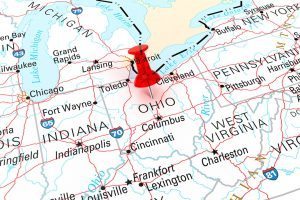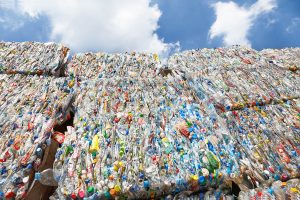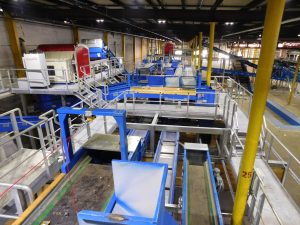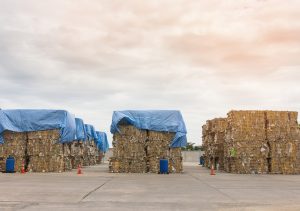 Industry stakeholders have formed a state recycling organization in Ohio. The group aims to serve as a one-stop shop for business development and support services.
Industry stakeholders have formed a state recycling organization in Ohio. The group aims to serve as a one-stop shop for business development and support services.

Resource Recycling keeps you on top of critical industry trends and brings unparalleled analysis of the evolving materials stream, market turbulence, policy trends and more.
Sign up for our free weekly e-newsletters to receive the latest news directly.
 Industry stakeholders have formed a state recycling organization in Ohio. The group aims to serve as a one-stop shop for business development and support services.
Industry stakeholders have formed a state recycling organization in Ohio. The group aims to serve as a one-stop shop for business development and support services.
 Steel and aluminum imports have been singled out by the White House, and though plenty of questions linger about the development, prices for recyclables could jump in the short term.
Steel and aluminum imports have been singled out by the White House, and though plenty of questions linger about the development, prices for recyclables could jump in the short term.
 Last month, readers were overwhelmingly drawn to coverage of China and its impacts, but they were also curious to learn more about TerraCycle.
Last month, readers were overwhelmingly drawn to coverage of China and its impacts, but they were also curious to learn more about TerraCycle.
 With China having recently shaken up export possibilities, industry leaders in the U.S. have amplified their calls for more domestic markets for recyclables. Two upcoming events aim to accelerate that process.
With China having recently shaken up export possibilities, industry leaders in the U.S. have amplified their calls for more domestic markets for recyclables. Two upcoming events aim to accelerate that process.
 Wheels are in motion to resume operations at an idled plastics recycling facility outside Baltimore. But if it does start up again, it will do so without one of its original partners.
Wheels are in motion to resume operations at an idled plastics recycling facility outside Baltimore. But if it does start up again, it will do so without one of its original partners.
 More than 100 government and corporate recycling leaders convened in Chattanooga, Tenn. to assess where the recycling industry stands in terms of data collection and analysis, and to generate recommendations on what new measurement steps need to be taken.
More than 100 government and corporate recycling leaders convened in Chattanooga, Tenn. to assess where the recycling industry stands in terms of data collection and analysis, and to generate recommendations on what new measurement steps need to be taken.
 Casella Waste Systems ended a good year on a bad note. China’s import restrictions dented recycling revenues for the Northeast company last fall.
Casella Waste Systems ended a good year on a bad note. China’s import restrictions dented recycling revenues for the Northeast company last fall.
 President Trump will nominate a top chemical industry attorney to serve as the head of a U.S. EPA office that oversees waste management and recycling.
President Trump will nominate a top chemical industry attorney to serve as the head of a U.S. EPA office that oversees waste management and recycling.

Extended producer responsibility rose to the forefront of debate in Connecticut as a strategy to reduce packaging waste in line with state mandates. A committee tasked with advising lawmakers during the coming legislative session recently split on the strategy, but the majority advised against it.

Credit: 1933bkk/Shutterstock
About 85 percent of mixed paper and OCC exported out of California has been bound for China in recent years, and as the Asian behemoth closes its doors to some of those imports, the state’s recycling industry is feeling the hit.
Continue Reading
